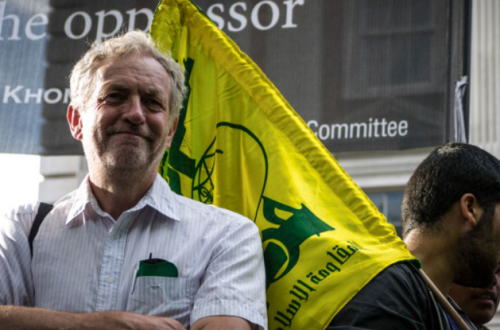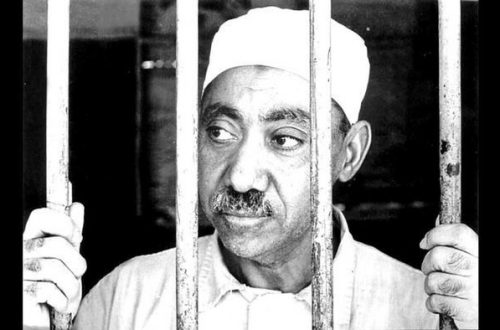This is a cross-post by Haras Rafiq, a Director of CENTRI, an organisation that specialises in countering extremism.
In the wake of the rise of the Tunisian and Egypt dissent against oppressive, totalitarian regimes, Prime Minister Cameron has come out fighting against one of our own oppressive totalitarian movement in the UK – the Islamists. He is right in his analysis that the only way to tackle the growing rise of Islamist inspired terrorism is to tackle the growing phenomenon that is at the root of the problem – Islamism which has to an extent been sponsored by the state.
As a British Muslim born in the UK, hailing from parents who originally emigrated here in the 1950s, I have seen the rise of Islamist extremism first hand and experienced the tactics and strategies that have been used to promote and grow the capacity for this divisive and dangerous ideology.
It is natural when immigrant societies first move to pastures new that they tend to congregate together. With regards to Muslims, this was usually filtered further by their country of origin and we were never classified as “Muslims” – rather by the country of our family’s origin and in my case, Pakistani. Our faith was an extension of our identity, not the primary identifier.
Due to the fact that the Asian population was lower than it is currently in the UK, the school that I attended only had 5% of its students that were from Asian immigrant families and we found that this presented us with no option but to integrate with students of a different faith – something that has helped me immensely to grow both as a British Citizen and a Muslim. There has never been a dichotomy for me in being both, just as there had not been for many of the Muslim immigrants at that time in being Pakistani/Muslim, Indian/Muslim, Bangladeshi/Muslim etc and for many of their offspring the word British has been substituted for the Asian country of origin.
However, the subsequent creation and sponsoring of faith based identity politics, often from the very top, has allowed those that entered the UK much later to exploit an over-exaggerated form of multiculturalism that has left predominantly Muslim immigrant communities without any resilience to these new messages of: isolation, confusion around identity, segregation, intolerance, hate, victim mentality and a focus on affairs abroad. By allowing and often promoting this, the state has played its part and many “foreign” communities (including non-Muslim) still live in isolation and segregation.
Furthermore, funding the growth of these new ideas – initially out of compassion and subsequently when things have gone wrong – helped these ideas to ferment and build capacity. The desire by those in authority to be seen to be doing something, often misplaced “vote grabbing” by appearing on platforms with people that formulate the ideas of extremism, gave these extremists exactly the political legitimacy that they need to sell back to their community.
Fast forward to 2011 and we have another phenomenon emanating from the state, one that has been using the tactic of funding and promoting (apparently) “non violent” extremists to stop jihadis from blowing themselves up.
Well, guess what, this has not worked either.
A couple of examples to highlight this point:
- The recent Stockholm bomber, Taimour Abdulwahab al-Abdaly attended a “non violent” extremist Mosque and rather than deradicalise him, he was turned away. Whilst this institution condemns violence in the UK, it carried videos that support suicide bombing as a military tactic abroad and its imam has supported attacks on western troops in Afghanistan and Iraq. This institution is also part of a fringe ideological and theological Salafist elite that attack and vilify other minority groups and in recent years have been funded almost exclusively by the Home Office as the bulwark against “violent extremism”.
- A recent comprehensive report by Centre for Social Cohesion calledIslamist Terrorism: The British Connections has identified that 68% of the individuals that have committed Islamist Related Offences have no direct link with proscribed organisations (at the time of print). Yet many of these people have been exposed to so called “non violent” Islamist inspired organisations at some stage eg. Islamic Societies in Universities (many have held senior positions). If non-violent Islamist institutions are the cure, then why were they not picked up?
David Cameron is right when he makes the distinction between Islam as a faith and Islamism as a Political Ideology that feeds off a warped interpretation of theology, a promotion of “them and us” with hatred or at best a dislike of the other. He is also correct that we need to delineate between Muslims that hold these abhorrent views and those that do not, otherwise it is far too easy to fall into the hands of the Islamists and lump all Muslims into one block that creates further polarisation between British Muslims and British non Muslims – one of the factors in the recent phenomenon that is the EDL. The preventing of this classification is part of the Islamist strategy to build their growth.
The muddled up thinking has to stop and a clear focus and leadership is required from the top so that all British citizens can collectively play a part in resisting and reversing these trends towards extremism, not just for the inevitable security benefits but also so that more British Muslims can play their rightful part in building our communities – much like their parents and grandparents did during and after WWII .


